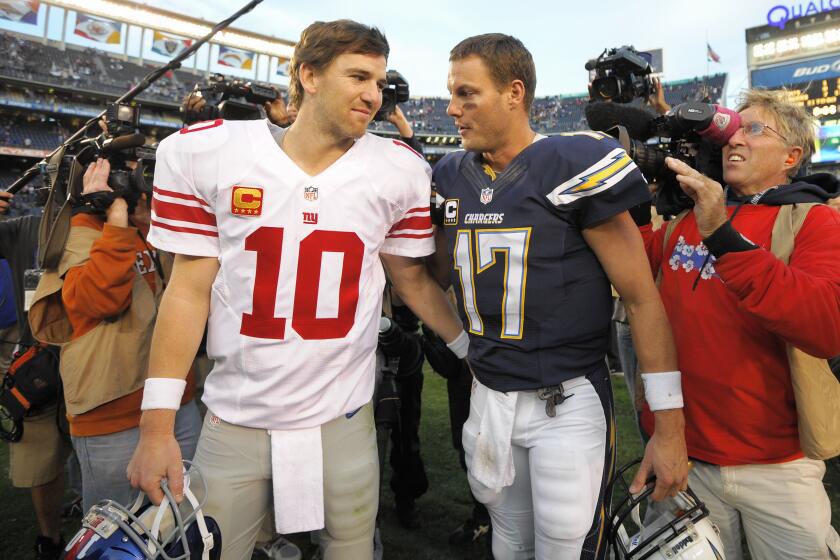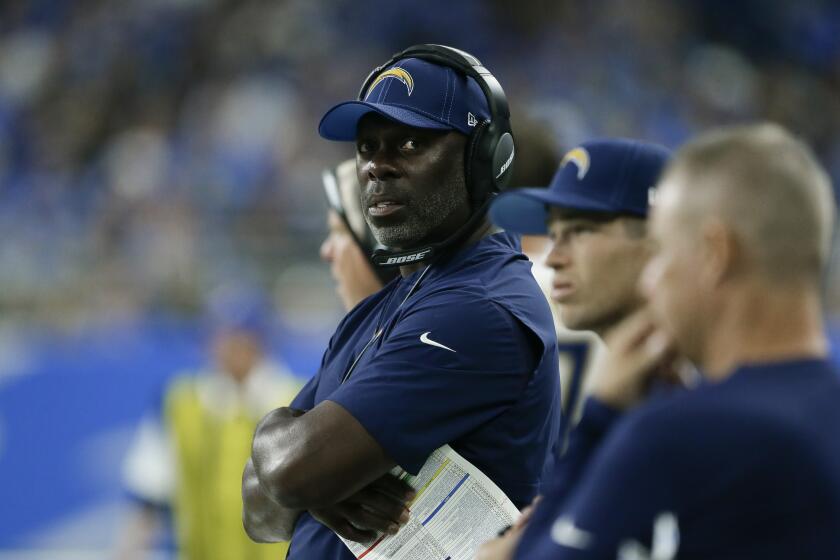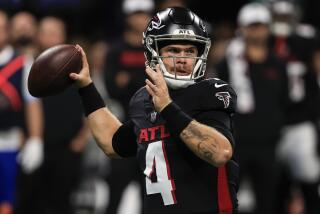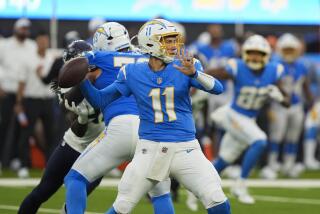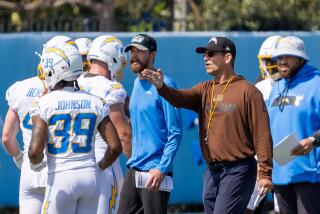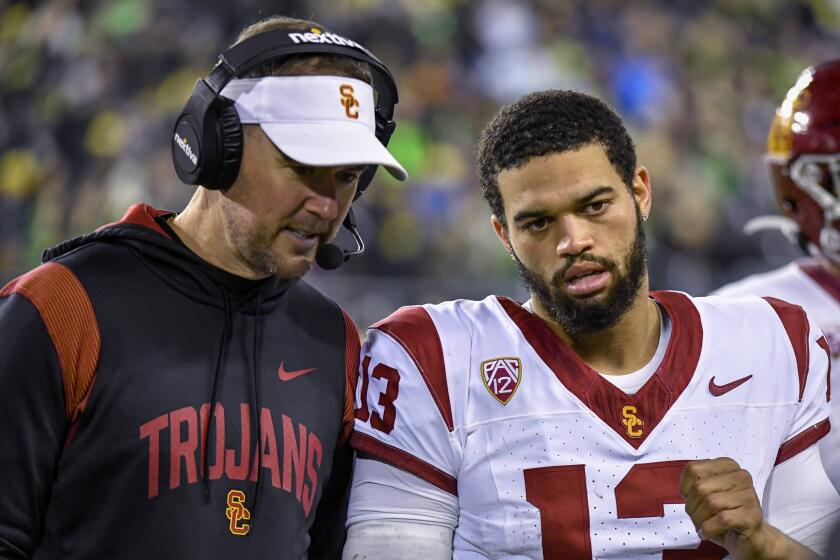NFL combine could answer some Chargers questions as they revamp roster
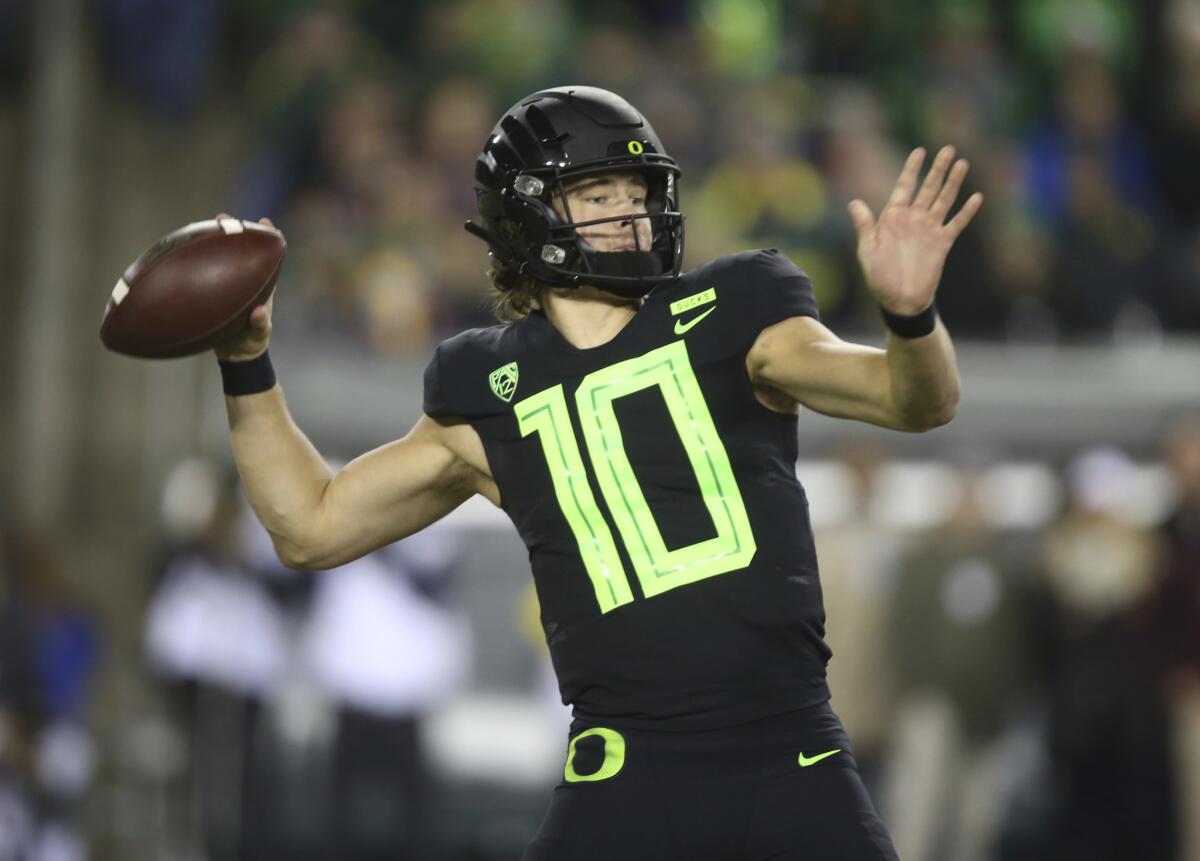
INDIANAPOLIS — The report surfaced last week of a Charger harboring “uncertainty” regarding the direction of the franchise and remaining “skeptical” about his future with the team.
This is a group that just lost six of its final seven games, finished 5-11, announced it was splitting up with the only man to start at quarterback since 2006 and is still trying to produce evidence that it can survive long-term in Los Angeles.
So, to be fair, Russell Okung isn’t the only person questioning what’s next for a football team that just wants to be loved.
In an offseason already significant for its transition, the Chargers will move forward this week at the NFL scouting combine, where their research relating to the No. 6 overall pick in the 2020 draft will intensify.
They are coming off a season in which they were winless in the AFC West and dropped five of seven games at Dignity Health Sports Park.
They also lost nine of 11 one-score decisions, with one of the victories coming only because Chicago’s kicker missed a field goal as time expired.
Yes, the Chargers are standing on shifting ground as they prepare to move into SoFi Stadium, the franchise’s first newly built home since the unveiling of what was then called San Diego Stadium in 1967.
“I’m not really big on rebuilding,” general manager Tom Telesco said immediately after the Chargers’ most recent last-place finish. “If you want to get technical, maybe retool.
“In the end, you can build it on the run. It may not be exactly the way you like it, but you can build it on the run. That’s what we did in 2013 [when the Chargers finished 9-7 and reached the AFC divisional playoff round], kind of built it on the run.”
This team has waived goodbye to Philip Rivers, meaning someone else will be the starting quarterback after Rivers’ historic 235-game streak.
That decision might have been enough to stir the concern of Okung, a two-time Pro Bowl left tackle who has been one of the Chargers’ offensive line leaders the past three years.
Philip Rivers, a free agent that the Chargers said they would not pursue to re-sign, isn’t ready to retire after parting ways with the only team of his 16-year career.
Replacing Rivers could be what that No. 6 selection is all about, the Chargers linked to Oregon’s Justin Herbert in most of the early mock drafts.
Before the kickoff of prospect evaluation season, Herbert is widely considered the third-best quarterback coming out of college, behind Louisiana State’s Joe Burrow and Alabama’s Tua Tagovailoa.
Both Burrow and Tagovailoa should be gone by the time the Chargers pick, which is why Herbert makes so much sense, at least in late February.
The Chargers have veteran Tyrod Taylor under contract for next season and could draft Herbert with the idea of bringing him along as his progress and Taylor’s play dictate.
Then again, the Chargers are believed to be a preferred destination of Tom Brady should the six-time Super Bowl champion become a free agent.
If Brady does relocate from New England to L.A., the Chargers’ direction in 2020 could change dramatically, the notion of building “on the run” perhaps sprinting forward.
With the Chargers cutting ties with Philip Rivers, coach Anthony Lynn, whether he likes it or not, has become the face of the franchise.
Brady isn’t the only possibility. Initial forecasts predict an NFL-wide offseason of quarterback shuffling, through free agency (Teddy Bridgewater, Jameis Winston, Ryan Tannehill, Marcus Mariota) or other means (Cam Newton, Derek Carr, Andy Dalton).
The Chargers’ next most-glaring need is on the offensive line, their play impacted in 2019 by the health issues of Okung and center Mike Pouncey, both veterans missing roughly two-thirds of the season.
This draft is believed to be rich with offensive tackles at the top, suggesting the sixth overall selection could net a decade-long starter at one of the sport’s most impactful positions.
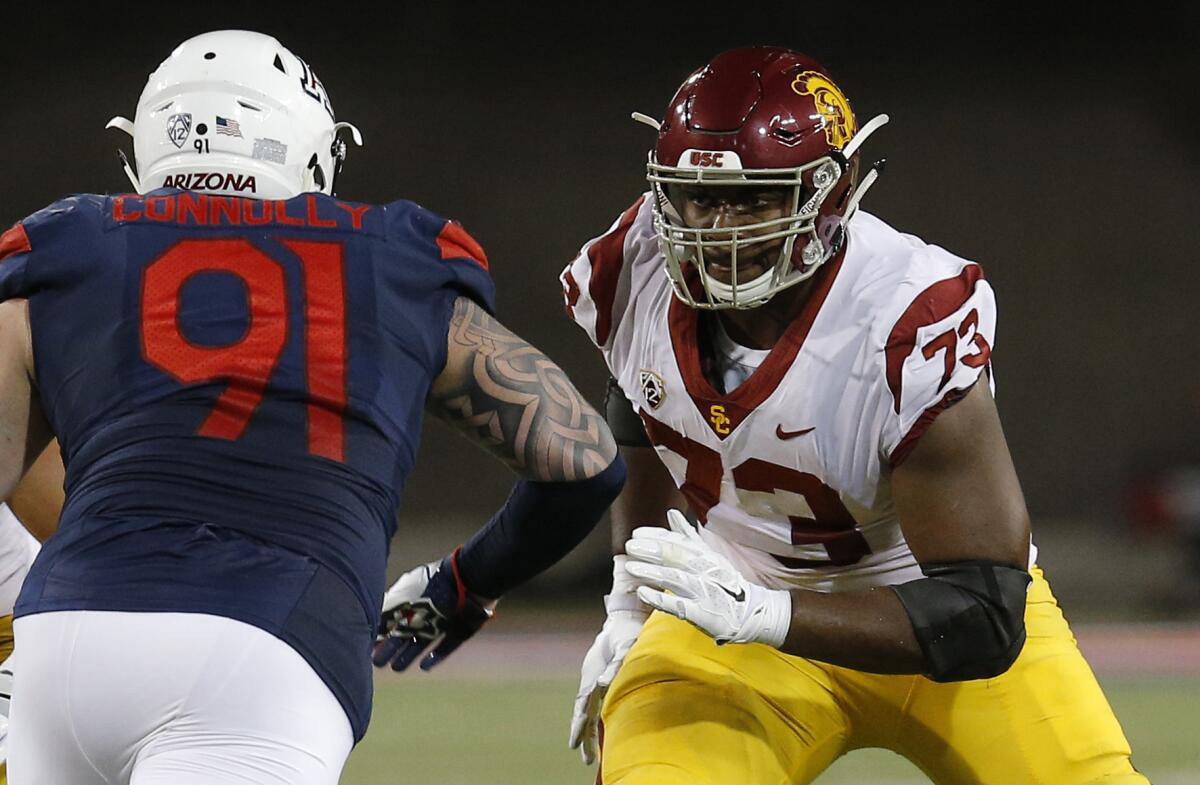
Among the top prospects are Alabama’s Jedrick Wills, Iowa’s Tristan Wirfs, Louisville’s Mekhi Becton, Georgia’s Andrew Thomas, Houston’s Josh Jones and USC’s Austin Jackson. Each has appeared in the first-round of various mock drafts.
The Chargers also could use another wide receiver to complement Keenan Allen and Mike Williams, a particularly notable development given the depth at the position in this draft.
So, given the way this team’s needs mesh with the next wave of collegiate talent, the combine figures to be an especially important exercise in roster-building for Telesco.
All of this makes Indianapolis the clear jumping-off point for a significant Chargers offseason, an offseason that will land who knows where.
More to Read
Go beyond the scoreboard
Get the latest on L.A.'s teams in the daily Sports Report newsletter.
You may occasionally receive promotional content from the Los Angeles Times.

